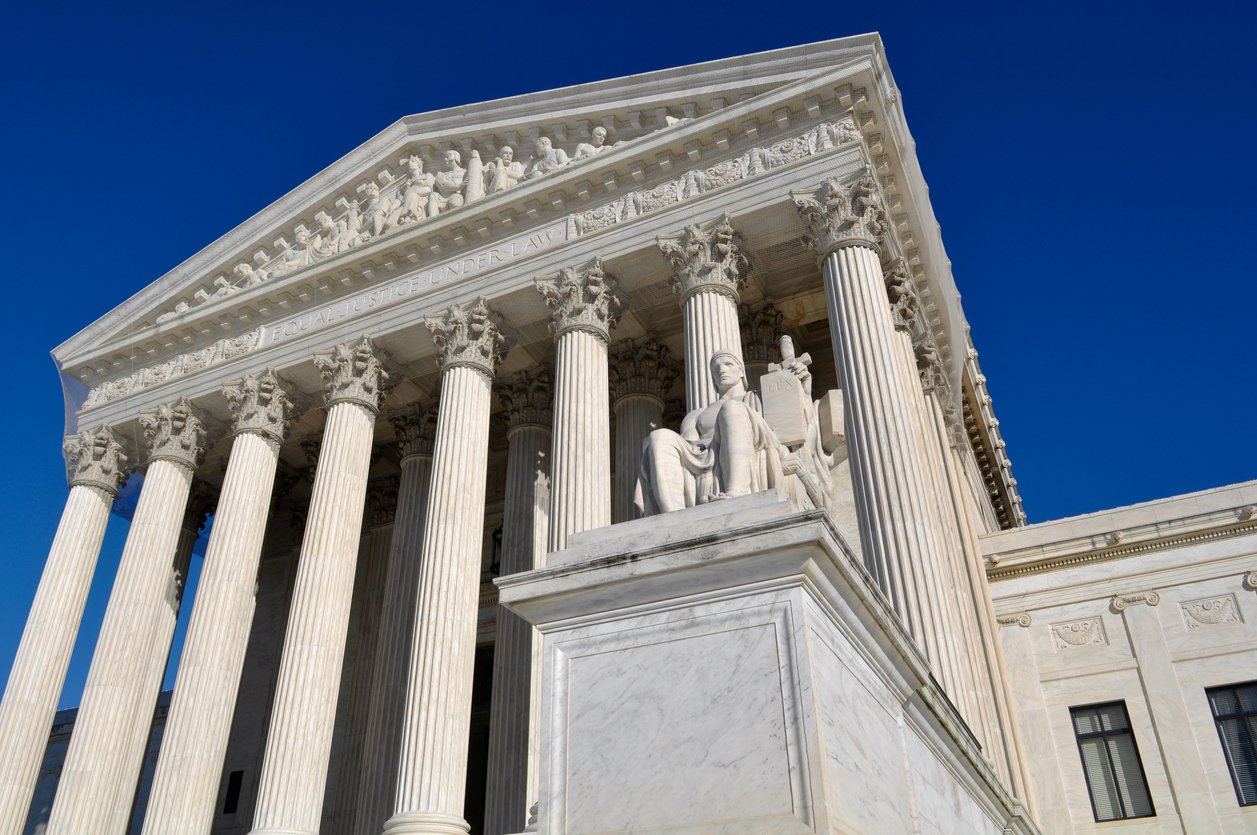3 min read
US Supreme Court conservatives signal support for milestone religious charter school
 Merit Street Media
|
May 01, 2025
Merit Street Media
|
May 01, 2025

WASHINGTON - Conservative U.S. Supreme Court justices signaled sympathy on Wednesday toward a bid led by two Catholic dioceses to establish in Oklahoma the nation's first taxpayer-funded religious charter school in a major test of religious rights and the separation of church and state in American education.
The justices heard arguments in an appeal by organizers of the proposed St. Isidore of Seville Catholic Virtual School and the state charter school board of a lower court's ruling that blocked the plan as a violation of the U.S. Constitution's First Amendment limits on government involvement in religion.
Set up as alternatives to traditional public schools, charter schools typically operate under private management and often feature small class sizes, innovative teaching styles or a particular academic focus. Charter schools are considered public schools under Oklahoma law and draw funding from the state government.
The Supreme Court, which has a 6-3 conservative majority, has taken an expansive view of religious rights in several rulings in recent years. Conservative Justice Amy Coney Barrett is not participating in this case.
St. Isidore, planned as a joint effort by the Catholic Archdiocese of Oklahoma City and Diocese of Tulsa, would offer virtual learning from kindergarten through high school. Its plan to integrate religion into its curriculum would make it the first religious charter school in the United States.
Divisions between the conservative and liberal justices were laid bare as the arguments explored the tensions between the First Amendment's two religion clauses. Its "establishment clause" restricts government officials from endorsing any particular religion or promoting religion over nonreligion. Its "free exercise" clause protects the free exercise of religion.
"Really, what you're saying is the free exercise clause trumps the essence of the establishment clause," liberal Justice Sonia Sotomayor told James Campbell, a lawyer for the Oklahoma charter school board, which approved St. Isidore in 2023. "The essence of the establishment clause was, 'We're not going to pay religious leaders to teach their religion.'"
The First Amendment generally constrains the government but not private entities.
Oklahoma's Republican Attorney General Gentner Drummond sued to challenge St. Isidore's establishment. Republican Oklahoma Governor Kevin Stitt has backed it, as has Republican President Donald Trump's administration.
Conservative Justice Brett Kavanaugh expressed concern that rejecting St. Isidore would be religious discrimination.
"Our cases have made very clear - and I think those are some of the most important cases we've had - of saying you can't treat religious people and religious institutions and religious speech as second class in the United States," Kavanaugh told Gregory Garre, representing Drummond's office.
"And when you have a program that's open to all comers, except religion," Kavanaugh continued, "that seems like rank discrimination against religion."
'AN ASTOUNDING REVERSAL'
Allowing St. Isidore, Garre argued, "would result in the astounding rule that states not only may, but must fund and create public religious schools - an astounding reversal from this court's time-honored precedents."
Sotomayor questioned whether taxpayers could support a charter school that would, for instance, refuse to teach evolution or the history of slavery in the United States, or that would exclude children of other religions.
Campbell pushed back on the Oklahoma attorney general's argument that St. Isidore would be an arm of the government.
"St. Isidore was privately created by two Catholic organizations, and it is controlled by a privately selected board of directors," Campbell said. "Under this court's test, St. Isidore is neither the government nor engaged in state action."
Oklahoma's top court last year blocked the school. It classified St. Isidore as a "governmental entity" that would act as "a surrogate of the state in providing free public education as any other state-sponsored charter school," and it decided the proposal ran afoul of the establishment clause.
Michael McGinley, a lawyer for St. Isidore, argued on Wednesday that blocking St. Isidore as a charter school violates the free exercise clause.
Conservative Justice Neil Gorsuch appeared persuaded that Oklahoma had chosen to structure its charter school program as largely outside government control, and that states could decide to make charter schools government entities.
D. John Sauer, solicitor general in Trump's administration, said a state could create charter schools directly by law and retain control over them through directors who are public officials.
"My understanding is that California's system is somewhat like that," Sauer told Gorsuch. "There may well be other states where they really are government entities."
"So a holding here may apply in some states and may not apply in others?" Gorsuch asked.
"Exactly right," Sauer responded. "And states would have the option to restructure their programs if they wanted to have these be government-run entities."
Conservative Chief Justice John Roberts seemed skeptical that Oklahoma could exclude a religious entity from the charter school system, citing the court's 2021 ruling concerning a Catholic church-affiliated foster care agency that Philadelphia had excluded as a service provider.
The Supreme Court's decision is expected by the end of June.
Copyright Reuters

